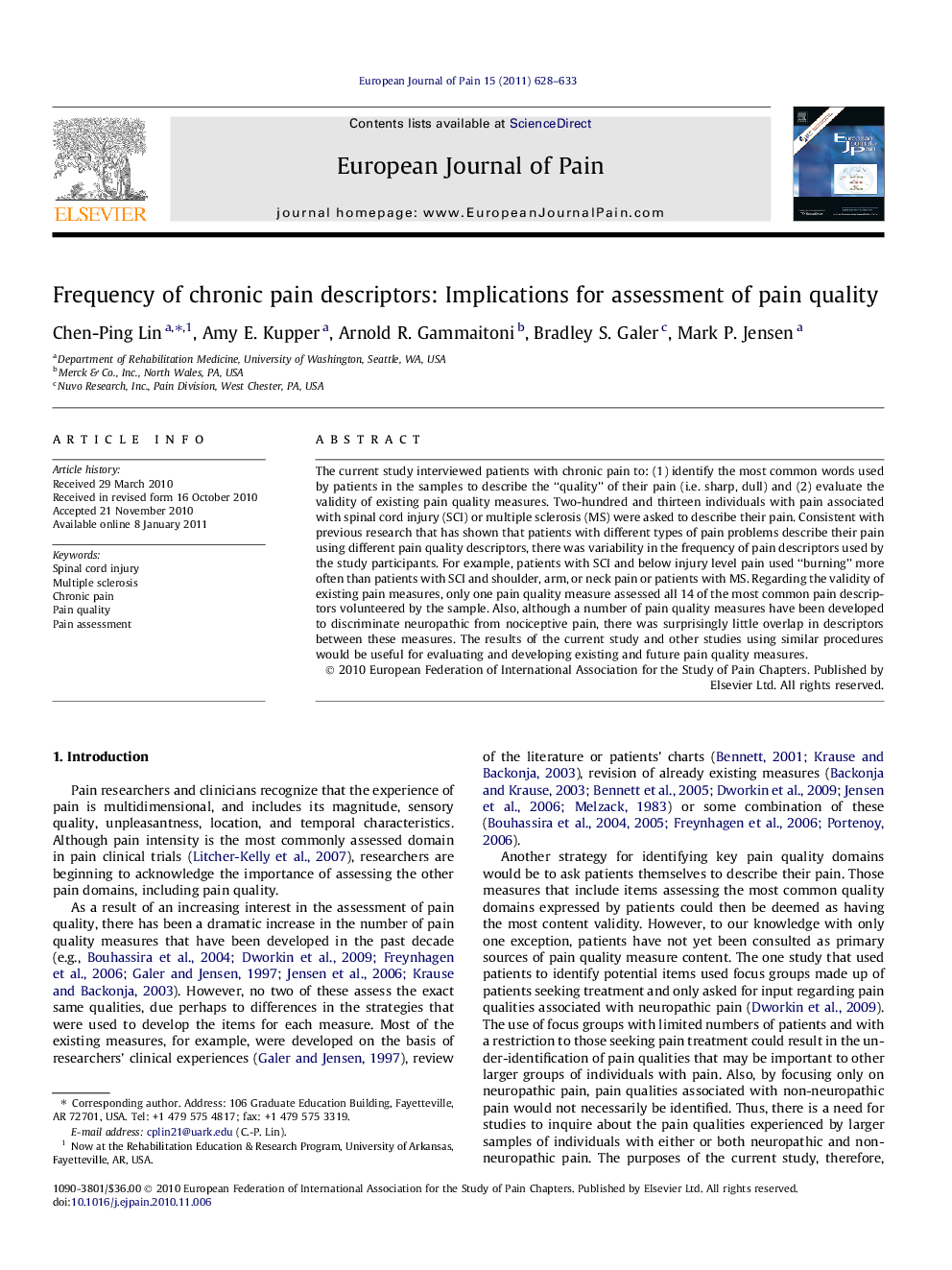| کد مقاله | کد نشریه | سال انتشار | مقاله انگلیسی | نسخه تمام متن |
|---|---|---|---|---|
| 907095 | 1472893 | 2011 | 6 صفحه PDF | دانلود رایگان |
عنوان انگلیسی مقاله ISI
Frequency of chronic pain descriptors: Implications for assessment of pain quality
دانلود مقاله + سفارش ترجمه
دانلود مقاله ISI انگلیسی
رایگان برای ایرانیان
کلمات کلیدی
موضوعات مرتبط
علوم زیستی و بیوفناوری
علم عصب شناسی
علوم اعصاب سلولی و مولکولی
پیش نمایش صفحه اول مقاله

چکیده انگلیسی
The current study interviewed patients with chronic pain to: (1) identify the most common words used by patients in the samples to describe the “quality” of their pain (i.e. sharp, dull) and (2) evaluate the validity of existing pain quality measures. Two-hundred and thirteen individuals with pain associated with spinal cord injury (SCI) or multiple sclerosis (MS) were asked to describe their pain. Consistent with previous research that has shown that patients with different types of pain problems describe their pain using different pain quality descriptors, there was variability in the frequency of pain descriptors used by the study participants. For example, patients with SCI and below injury level pain used “burning” more often than patients with SCI and shoulder, arm, or neck pain or patients with MS. Regarding the validity of existing pain measures, only one pain quality measure assessed all 14 of the most common pain descriptors volunteered by the sample. Also, although a number of pain quality measures have been developed to discriminate neuropathic from nociceptive pain, there was surprisingly little overlap in descriptors between these measures. The results of the current study and other studies using similar procedures would be useful for evaluating and developing existing and future pain quality measures.
ناشر
Database: Elsevier - ScienceDirect (ساینس دایرکت)
Journal: European Journal of Pain - Volume 15, Issue 6, July 2011, Pages 628-633
Journal: European Journal of Pain - Volume 15, Issue 6, July 2011, Pages 628-633
نویسندگان
Chen-Ping Lin, Amy E. Kupper, Arnold R. Gammaitoni, Bradley S. Galer, Mark P. Jensen,